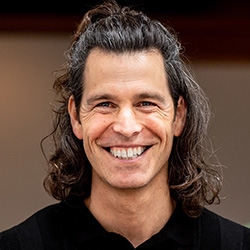

Search Results: depression
-
When does identifying our or others' needs become a coping mechanism that hides the real problems that go unaddressed, and thereby reinforcing problems? This article zooms out to take a look at how dealing with our needs in the absence of the larger picture can inadvertertly support unhealthy ways of operating, rather than become a healthy solution. It asks us to see what could be hidden -- both on the personal and societal levels.
-
-
How can Nonviolent Communication practices support us when we're feeling depressed? Taking a look at some characteristics of depression and how they're linked to unmet needs, we offer some steps to take that help you reconnect with life and others.
-
During the holiday season we may find ourselves taking responsibility for other's feelings, which can lead to guilt, shame, depression, and resentment. These feelings are exacerbated by the habitual pattern we call the "Vortex of Submission" (being hooked by a sense of duty and obligation). Read on for ways to recognize and break the pattern.
-
What can we do to bring vitality and resourcefulness back into our lives when we are feeling overwhelmed, depressed, anxious, or frustrated? Read on for a nine step process.
-
Discover how replacing "niceness" with honesty, passion, and compassion restores aliveness.
-
Trainer Tip: Sometimes our actions keep us from meeting our needs. Let’s say you long for connection with others, but you are also afraid of it, so you push people away. Then you tell yourself that no one likes you, resulting in depression and self-criticism. Self-empathy can help clarify what we truly want rather than focusing on what is wrong with others or ourselves, and help us align in ways more likely to meet our needs.
-
When avoidance coping or positive thinking sidesteps challenges, internal and external injustice and unrest also rises as we sidestep our values and integrity. It leaves us in sadness and distress. What's unacknowledged impacts ourselves and others undesirably. To live nonviolently we need to be in touch with what's real. With resonance we can more likely be with what's true, and trust our resilience and inner alignment.
-
Delving into the impact of societal structures and parenting approaches on individuals.
-
Control may help us feel safe in an unpredictable, unsafe, wild world. Wanting control may be a response to shielding ourselves from feeling fear and being aware of our vulnerability. The more we insulate from fear, discomfort, and vulnerability, the more we are cut off from aliveness; we can become more anxious, and depressed. The more we control the more we are disconnected from empathy and care. With aliveness come joy, peace, love, awe.
-
Trainer Tip: Every time you criticize yourself, you cause yourself to feel shame and guilt, which promotes depression and stagnation. Instead, bringing in more self compassion can increase opportunities for change. Do this by acknowledging your needs (or values) that aren’t met by your actions. Read on for how to do this.
-
Mismanaged emotional pain can compound and hurt ourselves and others. Four ways we can mismanage pain are: denial, blame, depression, and escape/numbing. This can result in hatred, resentment, discrimination, revenge, anger, and more problems. The fifth way we can deal with pain is to confront the pain acknowledging it and dealing with our unmet needs. This is a more direct path. Read on for more ideas for how to handle the pain.
-
Ask the Trainer: Is it a good idea to use NVC on persistent guilt, anger or depression without the aid of others?
-
Quite a few of us find the darker winter months emotionally tricky. If you're one of those sorts of people, here are three NVC-oriented tips to help you through to spring!
-
There are healers and therapists who see climate anxiety as a pathology. Instead, we can see it as an understandable reaction to the magnitude of the environmental problems that surround us. And we can see it as a subset of eco-anxiety: a feeling of worry, nervousness or unease triggered by an awareness of the ecological threats facing the earth due to climate catastrophe. Read on for tips on coping with the anxiety.
-
- Welcome unpleasant feelings and meet their flow in and around the body
- Discover how you can enjoy Anger as a beautiful life force
- Realize insecurity and depression as a door to the core of your humanity
- Know how to use fear to firmly connect to your life and strength
-
-
-
Exploring how stories and unmet needs each influence the cause of our feelings in NVC.
-
Why is it so difficult to change our patterns even when we want to, even when we experience shame or despair about them? Arnina Kashtan offers some of the common pitfalls and concrete steps to overcome them in the future.
Quick Links

Stay in Touch!
We value your privacy, won't share your email address and you can easily unsubscribe any time.


















